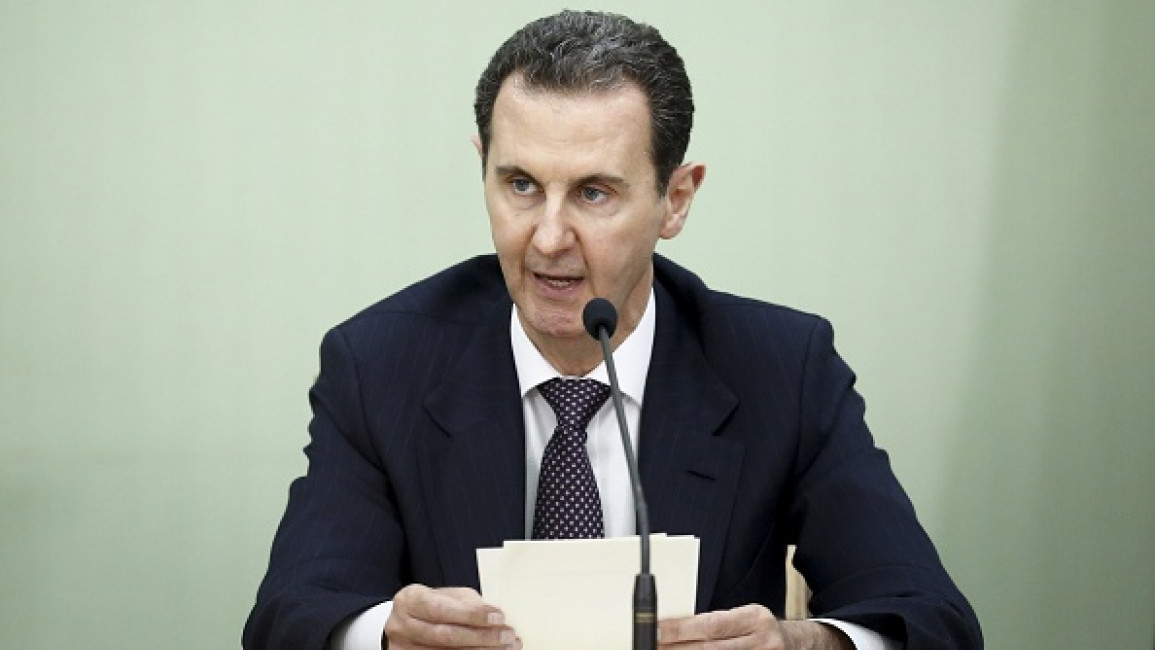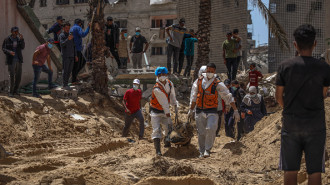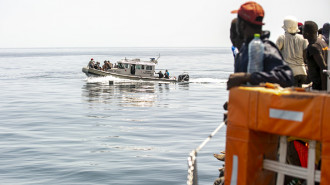Syrian rights activists 'betrayed' over Syria's readmission into Arab League
Syrian rights activists expressed anger over the Arab League's vote to readmit Syria on Sunday, saying the move will endanger their work to ensure accountability for crimes committed by the regime.
"It's a decision that shows complete disregard for the millions of people who have suffered under the regime's oppressive rule, including my own father who has been forcibly disappeared for over 9 years," Wafa Ali Mustafa, a Syrian journalist and activist who campaigns for the release of prisoners, including her father, held by the regime, told The New Arab.
Member states voted to reinstate Syria's membership 12 years after it was expelled from the pan-Arab body for the regime's brutal crackdown on protesters during the Syrian uprising.
The reinstatement is the latest step towards regional normalisation of the Assad regime, led by Saudi Arabia, the UAE and Jordan.
A notable holdout among the Arab states has been Qatar, which has been staunchly against reintegrating Assad into the international fold.
In a statement by the Qatari Ministry of Affairs, Qatar said that while there should be a political solution in Syria, it would "not be an obstacle" to an Arab consensus on the country's status.
The Arab League said in a statement on Sunday that it "emphasised the need to take practical and effective steps to resolve the crisis gradually, according to the step-by-step principle."
Jordan has led a "step-by-step" approach in which it and other countries will gradually normalise relations with Syria in exchange for reforms such as a general amnesty and conditions that would make a return for the millions of Syrian refugees displaced safely.
Activists are sceptical, however, that Arab states will be able to compel the Assad regime to make any sort of reforms.
"It is difficult for me to have faith that Arab countries will hold Assad accountable through this 'step-by-step' process and that reforms will occur as a result," Mustafa said.
Previously, states used a combination of economic and political sanctions in an attempt to bring Assad to the negotiating table and produce a political settlement to the Syrian civil war.
Human rights groups have previously warned that proceeding with normalisation before reforms are made eliminates any leverage for states to insist on accountability.
The regional detente with Damascus has also prompted fears about the safety of the millions of Syrian refugees living in neighbouring states.
Lebanon, began an aggressive deportation campaign in April, deporting at least 600 Syrians who did not have legal residency in the country.
"This will affect the refugees, that's my concern. Those who are sent back might be arrested, we don't know, there are no criteria for which ones Assad will arrest," Fadel Abdul Ghany, told TNA.
In addition to hosting large amounts of refugees, states like Jordan and Turkey also host groups and employees that monitor human rights violations in Syria.
While well-known activists would likely be spared from deportation back to Syria, there is a risk to those working to publicise human rights violations in Syria from neighbouring states.
"If they are working on documentation on the frontlines, I advise them to start looking for alternative places [to live]. Their work will be affected if it is public [facing]," Abdul Ghany said.



